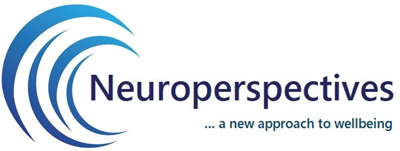Mediperspectives Programme
Mediperspectives provides doctors with the knowledge, insight and techniques to successfully manage their own mental and emotional health quickly and effectively resulting in lasting transformative change both personally and professionally.
Physician Mental and Emotional Health
From the moment a medical student begins their studies to their work as physicians, a culture of invulnerability is at play which is not necessarily helpful for physicians. Apart from being highly skilled professionals who diagnose and treat injuries and illnesses and attend to overall patient care, physicians are also mortals with the same mental and emotional needs as anyone else. This is a highly demanding profession and it is important for doctors to recognize the intense physical and emotional challenges and circumstances they experience.
While other emotionally demanding professions such as clinical psychology and psychotherapy have a support system in place which offers regular supervision and an opportunity to talk about professional challenges, doctors generally have to deal with their challenges on their own. Prior to the COVID-19 pandemic, there was already a notable increase in anxiety, depression, burnout, suicide, addiction, traumatic stress and other mood disorders. Since COVID-19 the increase has become even more concerning with between a quarter and a third of physicians reporting increased mental illness issues. The question has to be asked, as physicians care for their patients and clients, who in turn cares for them?

Mediperspective Programme Features
- Pre-programme individual consultation via Zoom
- Pre-programme psychosocial and personality assessments
- Two full day, interactive and in-depth workshops which explore the cognitive, behavioural, physical and psychosocial elements of physician distress including :
- Personality, emotional intelligence, personal resilience and stress tolerance
- Susceptibility factors contributing to mental and emotional distress in the medical profession
- Preventative strategies to support and maintain personal mental and emotional health
- How to recognize early indications of mental and emotional distress and immediate interventions which prevent distress from escalating
- How to have conversations around this topic with family, friends and employers
- How to recognise personal psychological symptoms of anxiety, depression, stress and burnout and support strategies to deal with these
- Understanding ‘compassion fatique,’ the psychological symptoms it causes and the techniques for managing it
- Personal integration of strategies that support your mental and emotional health
- How to develop a healthy and optimistic perspective on your professional life and formulation of present and future personal support plan
- 3 nights luxury accommodation and fine dining in a stunning 5 star resort with state of the art leisure facilities including swimming pools, spa and fitness centre
- Welcome reception on evening of arrival followed by dinner
- Special Farewell Dinner
- Post-programme consultation via Zoom
- Ongoing consultations as required
Research
Mental illness among doctors is increasing and has worsened since COVID-19. Strenuous workloads and exposure to trauma have led to a range of mental health problems including anxiety, post-traumatic stress disorder, substance use, depression and suicidal ideation in the medical community. Seeking support is hindered by stigma and concerns for job security (Collins et al., 2024)
We are seeing an increase in burnout and psychological distress in doctors which can have a serious impact on them and their families (Doherty, 2023)
Various mental health issues including anxiety, depression, post-traumatic stress disorder and distress are being experienced by healthcare professionals since COVID-19. (Saragih et al., 2021)
High rates of depression, burnout and suicide amongst physicians is impacting the medical profession however fear of negative consequences prevents physicians from seeking support. Untreated, these issues can have consequences for physicians and their patients. Contributing factors include stress load and organizational culture (Moutier, 2018)
Doctors are “suffering in silence” and not reaching out for support for personal and professional issues due to concerns about professional impact. The issues being experienced include mood disorders (including depression), burnout, traumatic stress, addiction and suicide. Some of these issues may contribute to impaired performance and unprofessional behaviour (Brower & Riba, 2017)


Research findings show increased stress, burnout, anxiety, alcoholism and depression in doctors due to a variety of factors including a sense of isolation, heavy workloads, organisational changes and a negative media climate. Concerns relating to confidentiality sometimes prevent doctors from seeking support. Doctors are more likely to die by suicide than the general population (Spiers et al., 2016)
Rates of suicide, depression, and anxiety disorders are alarmingly high amongst doctors and this issue has not received much attention until recently (Epstein et al., 2019)
Doctors have higher rates of burnout, depression and suicide than the general population but in spite of this, rarely seek support due to potential negative effects on their career (Saddawi-Konefka et al., 2021)
Doctors are at higher risk of suicide and there is widespread agreement that many aspects of medical training, orgaisational support and working environment are not acceptable (Harvey et al., 2021)
